Author Photo And Bio
 1. Persuasion by Jane Austen (1817). Eight years ago, Anne Elliot was persuaded by a friend to break off her engagement to a handsome naval officer because he lacked wealth and name. Now twenty-seven, her romantic prospects a dim memory, she encounters him once again, only now he is a grand success. Can she rekindle his love?
1. Persuasion by Jane Austen (1817). Eight years ago, Anne Elliot was persuaded by a friend to break off her engagement to a handsome naval officer because he lacked wealth and name. Now twenty-seven, her romantic prospects a dim memory, she encounters him once again, only now he is a grand success. Can she rekindle his love?
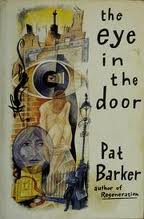 2. The Regeneration trilogy by Pat Barker (1995). These three novels—Regeneration (1991), The Eye in the Door (1993), and The Ghost Road (1995)—offer an unflinching look at World War I. Starting with the real-life psychiatric treatment of poet and British officer Sigfried Sassoon for shellshock, Barker shows how the war ruined but failed to replace nineteenth-century norms of gender, class, sexuality, and honor.
2. The Regeneration trilogy by Pat Barker (1995). These three novels—Regeneration (1991), The Eye in the Door (1993), and The Ghost Road (1995)—offer an unflinching look at World War I. Starting with the real-life psychiatric treatment of poet and British officer Sigfried Sassoon for shellshock, Barker shows how the war ruined but failed to replace nineteenth-century norms of gender, class, sexuality, and honor.
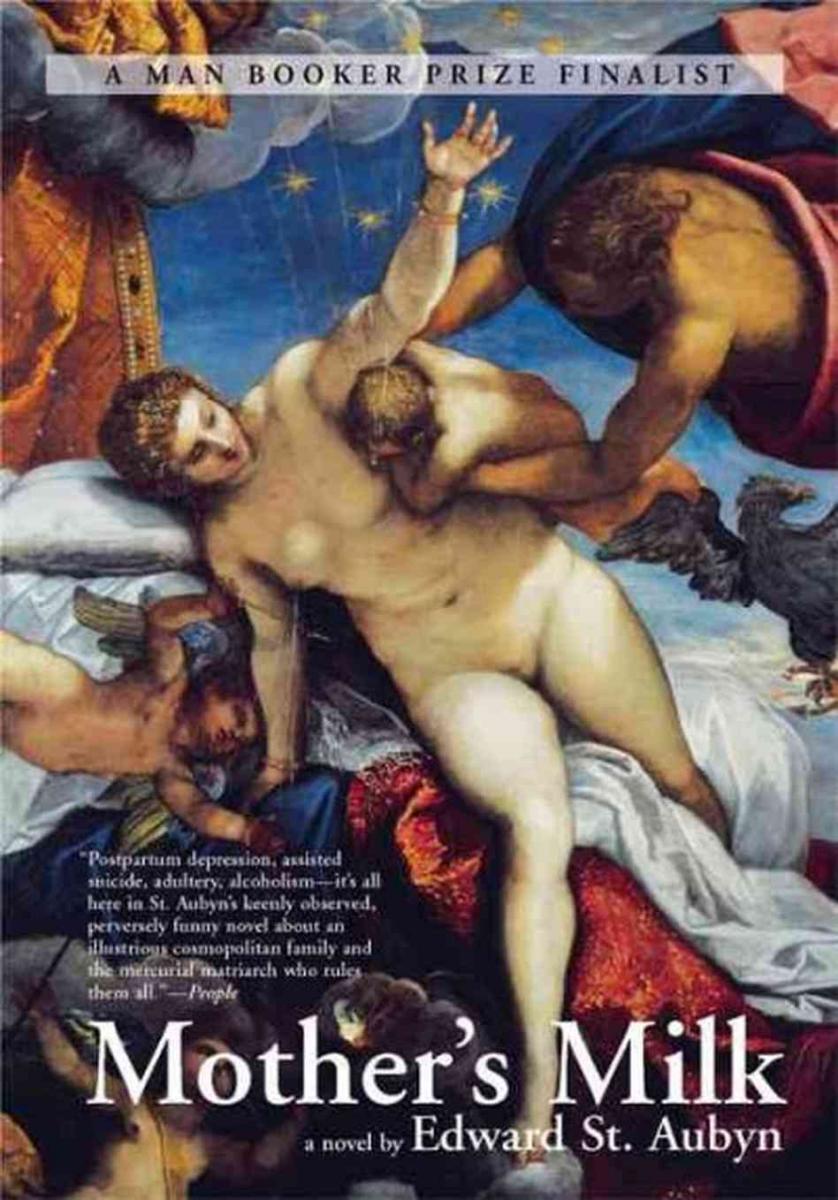 3. Mother's Milk by Edward St. Aubyn (2006). Writing with the scathing wit and bright perceptiveness, English author Edward St. Aubyn creates a complex family portrait that examines the shifting allegiances between mothers, sons, and husbands. The novel’s perspective ricochets among all members of the Melrose family—the family featured in St. Aubyn’s widely praised trilogy,Some Hope—starting with Robert, who provides an exceptionally droll and convincing account of being born; to Patrick, a hilariously churlish husband who has been sexually abandoned by his wife in favor of his sons; to Mary, who’s consumed by her children and overwhelming desire not to repeat the mistakes of her own mother. All the while, St. Aubyn examines the web of false promises that entangle this once illustrious family—whose last vestige of wealth, an old house in the south of France—is about to be donated by Patrick’s mother to a New Age foundation. The result is an up-to-the-minute dissection of the mores of child-rearing, marriage, adultery, and assisted suicide, written in luminous and acidic prose that combines the most excruciating emotional pain with the driest comedy.
3. Mother's Milk by Edward St. Aubyn (2006). Writing with the scathing wit and bright perceptiveness, English author Edward St. Aubyn creates a complex family portrait that examines the shifting allegiances between mothers, sons, and husbands. The novel’s perspective ricochets among all members of the Melrose family—the family featured in St. Aubyn’s widely praised trilogy,Some Hope—starting with Robert, who provides an exceptionally droll and convincing account of being born; to Patrick, a hilariously churlish husband who has been sexually abandoned by his wife in favor of his sons; to Mary, who’s consumed by her children and overwhelming desire not to repeat the mistakes of her own mother. All the while, St. Aubyn examines the web of false promises that entangle this once illustrious family—whose last vestige of wealth, an old house in the south of France—is about to be donated by Patrick’s mother to a New Age foundation. The result is an up-to-the-minute dissection of the mores of child-rearing, marriage, adultery, and assisted suicide, written in luminous and acidic prose that combines the most excruciating emotional pain with the driest comedy.
 4. Midnight’s Children by Salman Rushdie (1981). Years before The Satanic Verses, Rushdie had already won the Booker Prize for this reverential and blasphemous novel. Two babies born at the precise moment modern India came into existence —one Muslim, one Hindu —are then switched at birth and grow up in the other’s faith. Midnight’s Children sets a plot of comic-book proportions —people with superpowers too lazy to band together —against the backdrop of the subcontinent’s conflict-ridden history, the language and idioms of Rushdie’s youth careening against each other with madcap imagination and jolting fury.
4. Midnight’s Children by Salman Rushdie (1981). Years before The Satanic Verses, Rushdie had already won the Booker Prize for this reverential and blasphemous novel. Two babies born at the precise moment modern India came into existence —one Muslim, one Hindu —are then switched at birth and grow up in the other’s faith. Midnight’s Children sets a plot of comic-book proportions —people with superpowers too lazy to band together —against the backdrop of the subcontinent’s conflict-ridden history, the language and idioms of Rushdie’s youth careening against each other with madcap imagination and jolting fury.
 5. Patrimony by Philip Roth (1991). Roth watches as his eighty-six-year-old father—famous for his vigor, charm, and his repertoire of Newark recollections—battles with the brain tumor that will kill him. The son, full of love, anxiety, and dread, accompanies his father through each fearful stage of his final ordeal, and, as he does so, discloses the survivalist tenacity that has distinguished his father's long, stubborn engagement with life.
5. Patrimony by Philip Roth (1991). Roth watches as his eighty-six-year-old father—famous for his vigor, charm, and his repertoire of Newark recollections—battles with the brain tumor that will kill him. The son, full of love, anxiety, and dread, accompanies his father through each fearful stage of his final ordeal, and, as he does so, discloses the survivalist tenacity that has distinguished his father's long, stubborn engagement with life.
 6. Speak, Memory by Vladimir Nabokov (1951). The son of a Russian aristocrat who was assassinated for his belief in democracy, Nabokov had a preposterously privileged childhood, including teams of governesses and servants and sojourns along the Riviera. When the Bolsheviks arrived, the family was forced to flee amid a hail of bullets. Later, as a student at Cambridge, Nabokov confronted those who romanticized the politics that exiled him. Ricocheting through time, space, and subject matter as it delves whimsically into the author’s literary influences and the minutiae of family history, this is a masterpiece of literary memoir.
6. Speak, Memory by Vladimir Nabokov (1951). The son of a Russian aristocrat who was assassinated for his belief in democracy, Nabokov had a preposterously privileged childhood, including teams of governesses and servants and sojourns along the Riviera. When the Bolsheviks arrived, the family was forced to flee amid a hail of bullets. Later, as a student at Cambridge, Nabokov confronted those who romanticized the politics that exiled him. Ricocheting through time, space, and subject matter as it delves whimsically into the author’s literary influences and the minutiae of family history, this is a masterpiece of literary memoir.
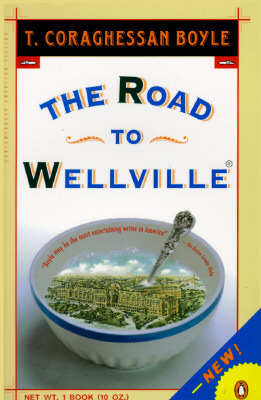 7. The Road to Wellville by T.C. Boyle (1993). Will Lightbody is a man with a stomach ailment whose only sin is loving his wife, Eleanor, too much. Eleanor is a health nut of the first stripe, and when in 1907 she journeys to Dr. John Harvey Kellogg's infamous Battle Creek Spa to live out the vegetarian ethos, poor Will goes too. So begins this wickedly comic look at turn-of-the-century fanatics in search of the magic pill to prolong their lives—or the profit to be had from manufacturing it. It is a novel brimming with a Dickensian cast of characters and laced with wildly wonderful plot twists.
7. The Road to Wellville by T.C. Boyle (1993). Will Lightbody is a man with a stomach ailment whose only sin is loving his wife, Eleanor, too much. Eleanor is a health nut of the first stripe, and when in 1907 she journeys to Dr. John Harvey Kellogg's infamous Battle Creek Spa to live out the vegetarian ethos, poor Will goes too. So begins this wickedly comic look at turn-of-the-century fanatics in search of the magic pill to prolong their lives—or the profit to be had from manufacturing it. It is a novel brimming with a Dickensian cast of characters and laced with wildly wonderful plot twists.
 8. The Known World by Edward P. Jones (2003). Winner of both the Pulitzer Prize and National Book Critics Circle Award for fiction, this rich, sprawling novel centers on the life and legacy of an African American man who was also a slaveholder. Through a wide cast of characters, who display a wide range of perspectives and emotions, Jones examines the concept of slavery, especially how the master–slave relationship corrupts the soul.
8. The Known World by Edward P. Jones (2003). Winner of both the Pulitzer Prize and National Book Critics Circle Award for fiction, this rich, sprawling novel centers on the life and legacy of an African American man who was also a slaveholder. Through a wide cast of characters, who display a wide range of perspectives and emotions, Jones examines the concept of slavery, especially how the master–slave relationship corrupts the soul.
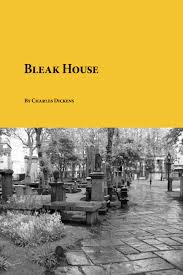 9. Bleak House by Charles Dickens (1853). Dickens is best known for his immense plots that trace every corner of Victorian society, and Bleak House fulfills that expectation to perfection. The plot braids the sentimental tale of an orphan unaware of her scandalous parentage with an ironic and bitterly funny satire of a lawsuit that appears to entail all of London. In doing so, the novel encompasses more than any other Dickens novel, shows the author’s mature skills, and is the only Victorian novel to include an incident of human spontaneous combustion.
9. Bleak House by Charles Dickens (1853). Dickens is best known for his immense plots that trace every corner of Victorian society, and Bleak House fulfills that expectation to perfection. The plot braids the sentimental tale of an orphan unaware of her scandalous parentage with an ironic and bitterly funny satire of a lawsuit that appears to entail all of London. In doing so, the novel encompasses more than any other Dickens novel, shows the author’s mature skills, and is the only Victorian novel to include an incident of human spontaneous combustion.
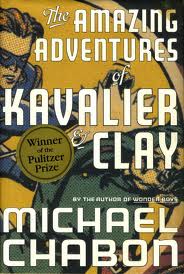 10. The Amazing Adventures of Kavalier & Clay by Michael Chabon (2000). The golden age of comics and the Holocaust power this Pulitzer Prize–winning saga about two Jewish cousins in Brooklyn who create the Nazi-bashing superhero, the Escapist. Through the tragic, comic, often superhuman adventures of Joe Kavalier —a refugee determined to rescue the relatives he left behind in Nazi-controlled Czechoslovakia —and Sammy Clay, Chabon weaves a lyrical and magical tale about war and mysticism; the connections between love, fear, hope, and art; and the nature of escape.
10. The Amazing Adventures of Kavalier & Clay by Michael Chabon (2000). The golden age of comics and the Holocaust power this Pulitzer Prize–winning saga about two Jewish cousins in Brooklyn who create the Nazi-bashing superhero, the Escapist. Through the tragic, comic, often superhuman adventures of Joe Kavalier —a refugee determined to rescue the relatives he left behind in Nazi-controlled Czechoslovakia —and Sammy Clay, Chabon weaves a lyrical and magical tale about war and mysticism; the connections between love, fear, hope, and art; and the nature of escape.